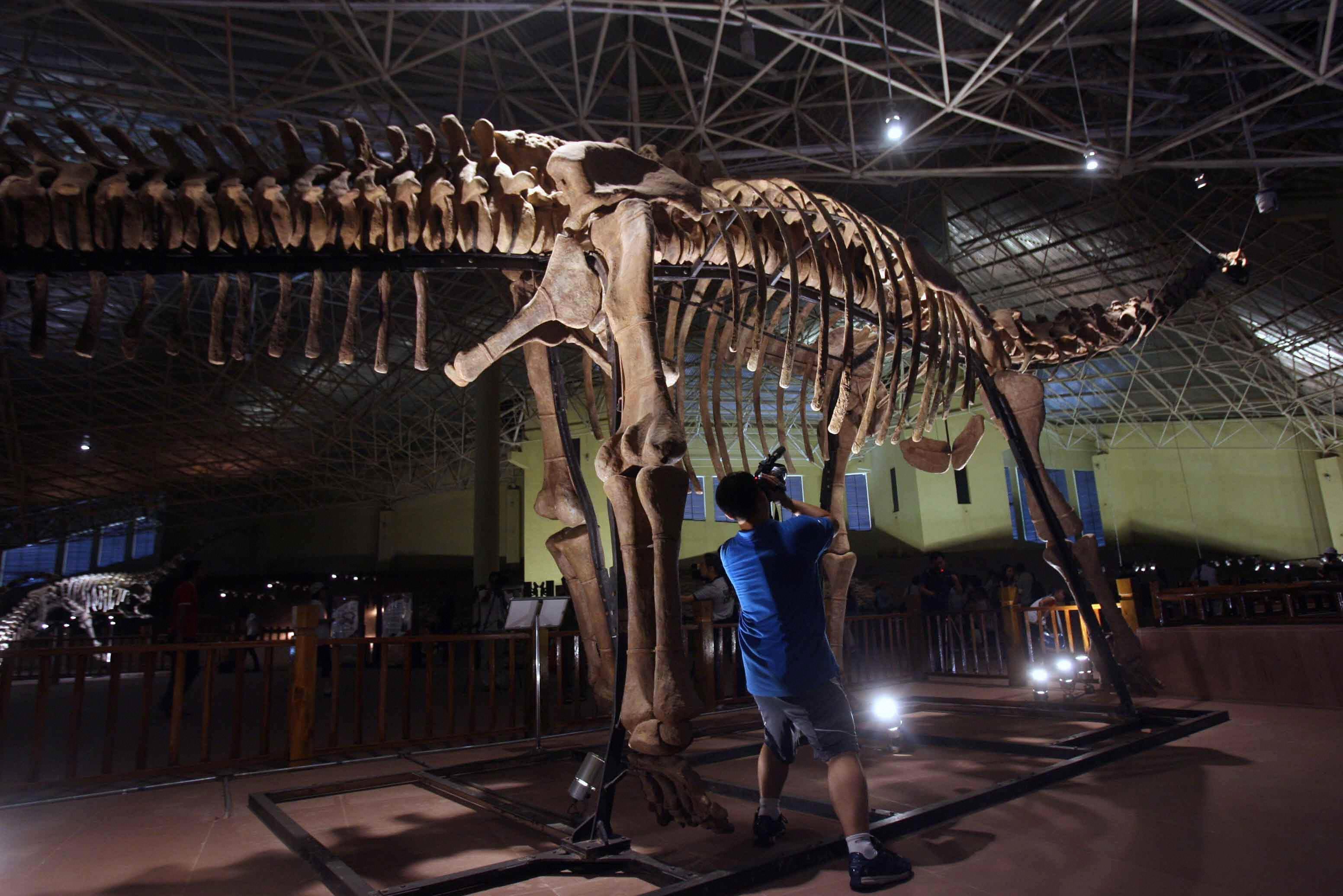Scientists in China discover two new massive dinosaur species as big as blue whales
The dinosaurs lived in the early Cretaceous period, about 120 to 130 million years ago

Your support helps us to tell the story
From reproductive rights to climate change to Big Tech, The Independent is on the ground when the story is developing. Whether it's investigating the financials of Elon Musk's pro-Trump PAC or producing our latest documentary, 'The A Word', which shines a light on the American women fighting for reproductive rights, we know how important it is to parse out the facts from the messaging.
At such a critical moment in US history, we need reporters on the ground. Your donation allows us to keep sending journalists to speak to both sides of the story.
The Independent is trusted by Americans across the entire political spectrum. And unlike many other quality news outlets, we choose not to lock Americans out of our reporting and analysis with paywalls. We believe quality journalism should be available to everyone, paid for by those who can afford it.
Your support makes all the difference.Two new species of massive dinosaurs in China – almost as big as blue whales – have been discovered by scientists, who said the species may have lived about 120 to 130 million years ago.
The research, published in the journal Scientific Reports, is based on an analysis of fossils that have emerged from China’s northwest regions – in Xinjiang and the Turpan-Hami Basin – which increase the diversity of these extinct megafauna in the Asian continent.
The scientists, including those from the Chinese Academy of Sciences, found two of the fossil specimens were from previously unknown species.
They have named the two sauropod giant dinosaur species Silutitan sinensis – “silu” meaning “Silk Road” in Mandarin – and Hamititan xinjiangensis, a nod to the region where it was found.
The Silutitan species, researchers estimated, could be over 20 metres long and the Hamititan specimen may have been about 17 metres long, compared to modern-day blue whales which grow to lengths of 23-30 metres.
The two species – dating back to the early Cretaceous period about 120 to 130 million years ago – belong to the sauropod family, which includes a group of plant-eating dinosaurs with characteristic long necks and were some of the largest animals to have roamed the planet, said the study.
The fossils were uncovered in places where these vertebrates are not common, increasing the sauropod diversity of Asia, according to the scientists.
“These dinosaurs are the first vertebrates reported in this region, increasing the diversity of the fauna as well as the information on Chinese sauropods,” the scientists said in the study.
While China has experienced a surge in the discovery of new dinosaur fossils, offering more clues to the diversity of the giant reptiles, they said there is still debate over the relationship between species and their classification.
In April, scientists discovered the first-known fossil of a flying dinosaur with opposable thumbs – nicknamed the monkeydactyl – in Liaoning, northeastern China, a hotbed for fossil discovery.
Last year palaeontologists in China unearthed the fossil of a 125 million-year-old dinosaur buried by Pompei-like volcanic eruptions and the year before that, they found the remains of little dinosaurs with bat-like wings.
Join our commenting forum
Join thought-provoking conversations, follow other Independent readers and see their replies
Comments